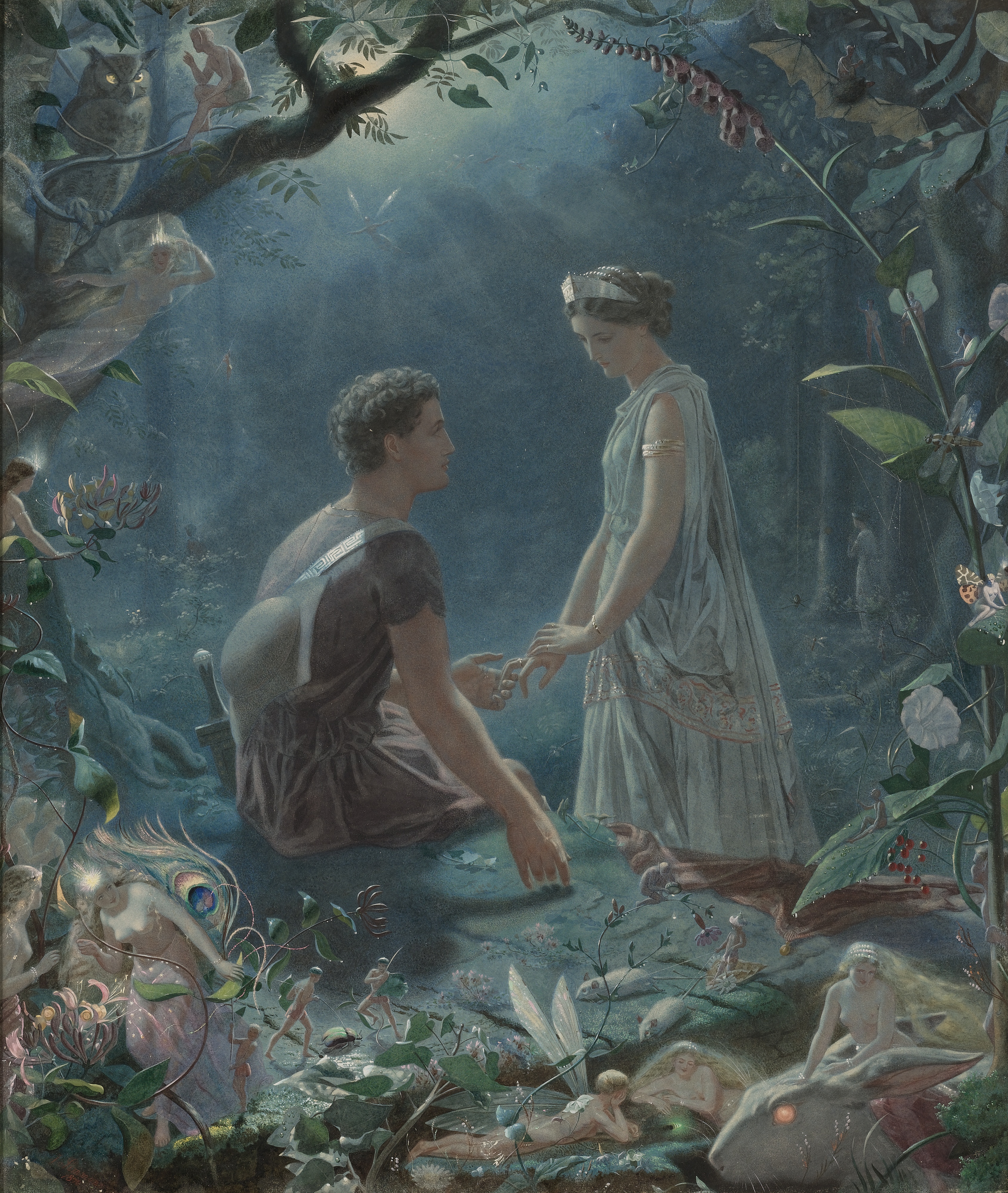Monday
A couple of years ago a former student informed me that she was going to have a Midsummer Night’s Dream-themed wedding in June. Danie was a political science major who took an Introduction to Literature course where I taught the play. I asked her to send me pictures and got her permission to blog about it.
She couldn’t have chosen a better literary work for the occasion. Midsummer perfectly balances social ritual with our natural urges.
Along with my congratulations, I sent Danie several questions after hearing about her plans. Here’s my e-mail message:
I want to hear a full account of your MND-themed wedding! If you send me a photo, I’ll even write a post about it since I’m in love with the idea. Certain questions come up, however. Are you marrying an ass? Will the bridegroom wear a donkey head? Or are you Hippolyta and did he woo you by his sword, doing you injury? (But now presumably he will he be wedding you in a different key, with pomp, with triumph, and with reveling.) Will you have really bad theatrical entertainment after the wedding? Will there be children dressed as fairies strewing rose petals? Will it be outside and will you go barefoot?
To which Danie replied,
I joke that I am marrying an ass! I love the idea of dressing up as a fairy queen, so my fiancé and I are going as Oberon and Titania. Our officiant is a Shakespeare enthusiast so she’ll be adding a lot of Shakespeare quotes to the ceremony. And yes, I plan to have two lovely flower girls dressed as fairies. It will be outside and I do plan to go barefoot! Ha ha! You know me too well.
I have asked my friends about putting on the play within a play, so I am hoping to pull that together in time for the wedding. Not sure if they can, so fingers crossed!
Danie never informed me how it turned out—other things on her mind?—but I can use my imagination. First of all, I hope that the two did not quarrel before the wedding, since it would have been rained out. I wonder if, like Lysander, Danie’s fiancé made moves the night before, then chased after the maid of honor, then had a fight with a groomsman, and only then returned to her. I hope that her fiancé didn’t make imperious demands as Oberon does with Titania: “Am not I thy lord?”
Danie married an Englishman so they spent many months apart while she finished up college. Midsummer Night’s Dream, appropriately enough, addresses the issue of delayed gratification:
O, methinks, how slow
This old moon wanes! she lingers my desires,
Like to a step-dame or a dowager
Long withering out a young man revenue.
In my note, I told Danie about my deep belief in marriage and weddings. Midsummer Night’s Dream honors both the urgent desires of the young lovers and society’s insistence on ritual. When balance is lacking, unhappiness ensues: we see an oppressive society in Act I and sexual desire running unchecked in Acts II and III. Shakespeare honors both tradition and nature in the play’s happy resolution.
This being the twenty-first century, I suspect that Danie and her husband aren’t planning to have children right away, but they might still take seriously the blessing that Oberon bestows upon the newly married couples after they have gone to bed. He promises that they will have healthy and blemish-free babies:
Now, until the break of day,
Through this house each fairy stray.
To the best bride-bed will we,
Which by us shall blessed be;
And the issue there create
Ever shall be fortunate.
So shall all the couples three
Ever true in loving be;
And the blots of Nature’s hand
Shall not in their issue stand;
Never mole, hare lip, nor scar,
Nor mark prodigious, such as are
Despised in nativity,
Shall upon their children be.
With this field-dew consecrate,
Every fairy take his gait;
And each several chamber bless,
Through this palace, with sweet peace;
And the owner of it blest
Ever shall in safety rest.
One other note: Theseus chooses Bottom’s play, awful though it is, because the couples have to fill up the hours between the marriage ceremony and bedtime. Some are undoubtedly anxious, others impatient. Only a play that they can laugh at will relieve tensions and pass the time. This may no longer be relevant given that most couples these days are sexually active before getting married.
For that matter, the play may seem dated because most don’t have to rebel against tyrannical fathers, and there’s no longer a stigma about cavorting in the woods.
But that being said, there still is something magical—something fairy-like—about the wedding ritual, which acknowledges the spiritual bond that accompanies physical coupling. That part of the play is as powerful as ever, reason enough to opt for a themed wedding.


